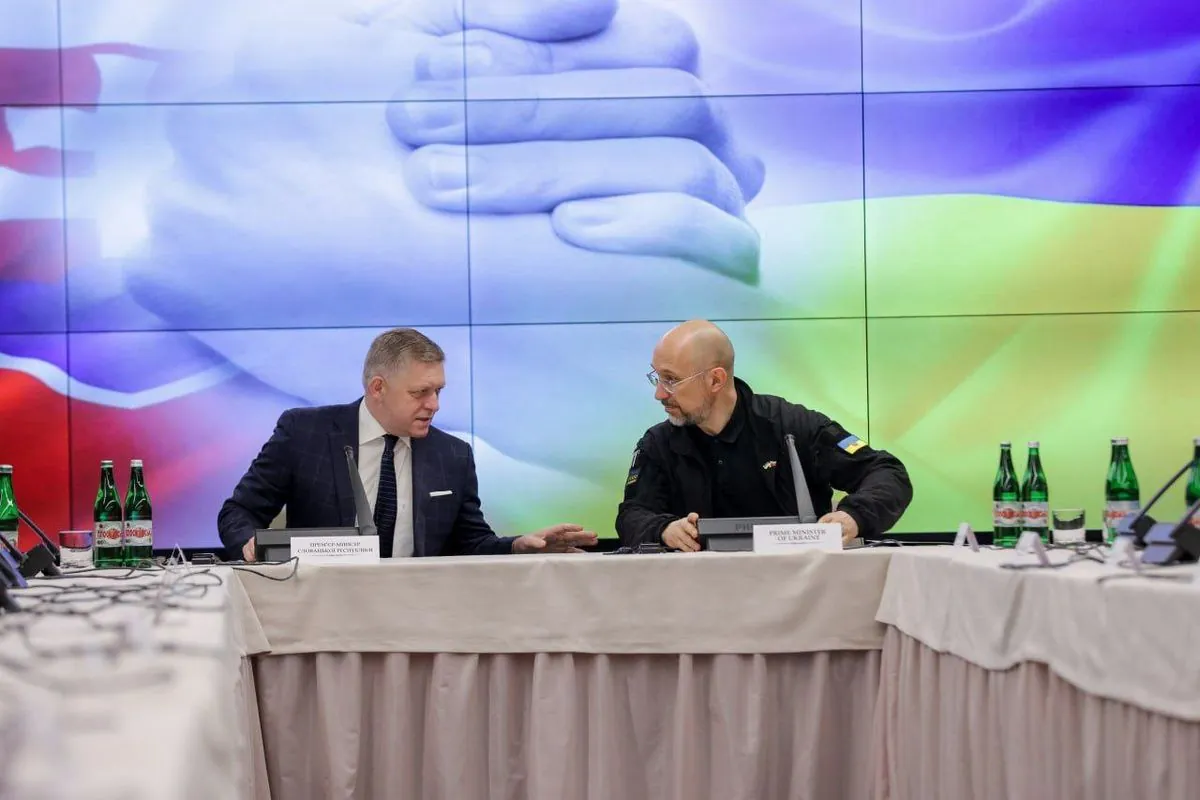In a significant development for European energy dynamics, Denys Shmyhal, the Prime Minister of Ukraine, has announced that his country will not extend its gas transit agreement with Russia beyond its expiration at the end of 2024. This declaration came during a meeting with Slovak Prime Minister Robert Fico in Uzhhorod, western Ukraine, on October 7, 2023.
The talks between the two leaders centered on infrastructure cooperation, energy security, and support for Kyiv's peace plan. Shmyhal emphasized Ukraine's strategic goal to deprive the Kremlin of profits from hydrocarbon sales, which he claims are used to finance the ongoing conflict. This decision marks a significant shift in the region's energy landscape, as Ukraine's gas transit system, built during the Soviet era, has long been a crucial route for Russian gas to reach European markets.
Slovakia, an EU and NATO member sharing a border with Ukraine, has expressed a strong interest in maintaining the transit of oil and gas from Russia via Ukraine. The country's state-owned gas buyer, SPP, has been negotiating to secure an extension of gas transit through Ukraine after the current contract with Russian supplier Gazprom expires.
Shmyhal acknowledged the "acute dependence" of some states, including Slovakia, on Russian gas supply but emphasized the need for gradual diversification. In a move towards this goal, the two countries agreed to create an Eastern European energy hub, leveraging Ukraine's substantial gas storage facilities, which are among the largest in Europe.
The meeting also highlighted the complex geopolitical dynamics in the region. While Slovakia supports Ukraine's aspirations to join the European Union, it opposes Kyiv's accession to NATO. Fico, known for his criticism of Western military aid to Ukraine, reiterated his view that there is no military solution to the Ukrainian-Russian war. He emphasized the need for a sustainable peace with security guarantees, respecting Ukraine's sovereignty and territorial integrity.
"Peace must be sustainable, you have to have security guarantees. Above all, sovereignty and territorial integrity of Ukraine must be respected. We understand all that."
Despite his stance on military aid, Fico confirmed Slovakia's continued interest in using Ukraine's gas and oil transit systems after the current deal with Russia expires. This aligns with Ukraine's own interest in maintaining the functionality of its transit infrastructure.
The decision not to extend the gas transit agreement comes at a time when the European Union has been actively working to reduce its dependence on Russian energy since 2014. Initiatives such as the Southern Gas Corridor and the Trans-Balkan pipeline reversal project aim to diversify gas supplies in southeastern Europe.
Ukraine's move also reflects its broader energy strategy, which includes exploring increased use of renewable energy sources and participating in regional initiatives like the Three Seas Initiative, aimed at improving infrastructure in Central and Eastern Europe.
As the 2024 deadline approaches, the energy landscape in Eastern Europe is set for significant changes. The creation of an Eastern European energy hub and Ukraine's decision on gas transit will likely have far-reaching implications for energy security and geopolitical relations in the region.
